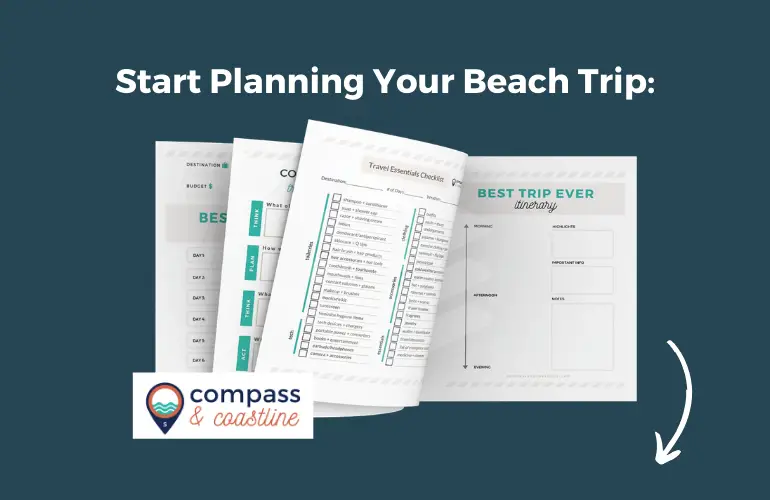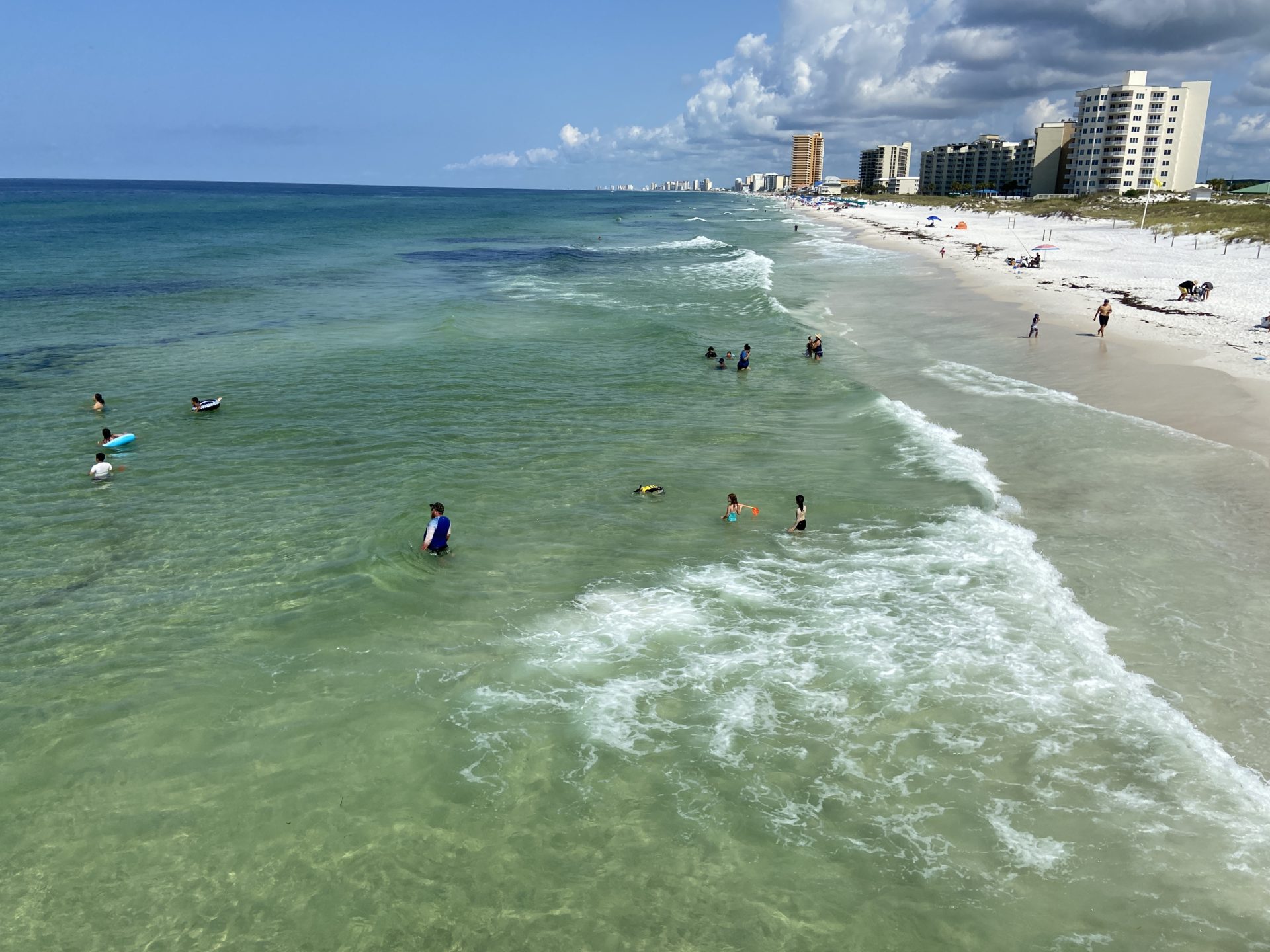The Coronavirus disease, also known as COVID-19, was officially declared a pandemic by the World Health Organization. But what if you’ve already booked a trip? In this post, we’re examining what travelers need to know about Coronavirus so you can be informed. Learn what experts are saying, how it will impact your trip, and the questions you should ask yourself before you travel.
UPDATED August 2021

There’s lots of information online about Coronavirus. From news outlets, to travel experts, government agencies and medical professionals…
But how do you weed through it all to make a smart decision when it comes to traveling during a pandemic?
In this guide, we’ll keep it simple and straightforward so you have the confidence to decide whether or not to cancel your travel plans. Ready to get your questions answered? Here’s what we’ll cover:
- Coronavirus travel advice from experts
- The 5 most important factors to determine if you should cancel plans
- Traveling during a pandemic and the impact it has on your trip
- Tips for staying healthy while traveling
- How to still enjoy a trip (even if you end up canceling)
Disclaimer: I’m a travel blogger, not an infectious disease expert! The intent of this post is to help you stay informed, and I also encourage you to talk to your doctor prior to traveling. Stay healthy my friend!
What Experts Are Saying About Coronavirus
Isn’t it crazy to think we are living through a pandemic? There are unfortunately over 4 million deaths worldwide and experts don’t know how or when it will end.
As a traveler, these are the most authoritative resources in the United States:
- The Centers for Disease Control and Prevention (CDC) has travel guidelines by country. Each destination has a “risk assessment level” with Level 1 representing the lowest risk and Level 5 representing the highest risk.
- The U.S. Department of State has guidelines for travelers and a separate website specifically for international travel
- The World Health Organization has travel advice and videos that are updated frequently
Looking for Coronavirus maps, destinations on lockdown, and frequently-updated information?
- CDC Coronavirus Cases in the U.S. (updated daily)
- CDC Global Map of confirmed cases
Deciding Whether Or Not To Travel
When planning a trip, the primary focus is typically on where to go, things to do, etc. Disease is probably not top of mind. But as a traveler, it’s incredibly important to be aware of health concerns at your destination.

The reality of the current situation is that travel likely isn’t a good idea. But before you decide for yourself, read the information below. Each person’s situation is unique, and the goal of this post is to help you be informed, not tell you what to do.
The 6 Questions To Ask Yourself
Here’s how to evaluate your trip and decide whether or not to travel:
1. What’s My Destination?
Certain destinations could be less risky to travel to, and others are higher risk. Is the area you want to visit on lockdown? Are there known outbreaks and a growing number of confirmed cases or hospitalizations? Those are a few indicators that you should cancel your plans. Each U.S. state and region has local data and measures in place that vary significantly. International travel is even more unpredictable as the Coronavirus continues to spread. Check the CDC guidelines for international travel and U.S. travel before you go.
Your destination might require a vaccine passport or other proof of vaccination. For example, Canada recently announced they will require vaccination for anyone traveling in the country on flights or trains. Within the U.S., many states and cities are considering the same. Research your destination before you book your trip (and stay informed pre-travel) in case your destination institutes new guidelines.
2. How Vulnerable Am I?
Some people are more at risk of contracting Coronavirus. Things like age, overall health, and underlying conditions can make one person more susceptible than another.
In the early days of the pandemic, advice from experts used to be that if you’re young and healthy, you’re probably okay. Now, over 2 years into the pandemic, most experts would agree that no one is 100% immune. The variants have impacted somewhat different demographics and are something to consider before you travel. Take the time to do your research and assess your vulnerability.
3. What’s My Vaccination Status?
Guidelines vary for travelers who are unvaccinated versus vaccinated. This will impact everything from the actual destination you choose, to boarding planes/buses/trains, where and when masks are required and more.
Know whether a negative covid test is required. For example, Hawaii is one U.S. state that has strict requirements for entry. Another example is large events like concerts. In some instances, proof of a negative test ensures you can attend.
4. What’s The Nature Of My Trip?
The type of trip you’re taking matters. Are you planning to travel on an airplane, bus, or train? Or are you planning to drive to your destination? Anytime you use public transportation you’re in close proximity to others and are more at risk for germs to spread. (Considering flying? Check out my post Flying During Covid: What To Expect and 10 Changes You’ll See. )
What you do on your trip matters. Since the Coronavirus easily spreads between people, the fewer people you’re around the better. Are you planning to tour a busy museum? Or soak up the sun on a deserted beach? Consider what you’ll be doing (and who you’ll be in contact with) on your trip.
5. What Could Go Wrong?
Any travel during covid times is risky. To decide if it’s worth it to you, consider the potential fallout. What happens if you get sick while traveling – do you have health insurance? Can you take time off work? What happens if you’re hospitalized? Getting sick while traveling also affects how you get back home as well as length of your trip.
Another thing you’ll want to consider is local regulations where you live. For example, at the beginning of the pandemic I lived in California and throughout 2020 was on “stay at home” orders off and on. Late that year we moved to Florida, where there are minimal restrictions. No matter where you live, please be safe and respect local laws.
6. How Will This Impact Others?
Who could you potentially put at risk? Beyond your own wellbeing, it’s important to also consider any travel partners, family members, co-workers, or other people you are in close contact with.
At this point, Coronavirus has shown to be extremely dangerous so you’ll be impacting everyone you’re around. Really consider the fact that traveling will likely put lots of other people at risk.
What Travelers Need To Know About Coronavirus
Here are a few more considerations to help you decide if you should cancel your travel plans due to Coronavirus:
- Covid testing for travel
- What about travel insurance?
- Can I reschedule my travel plans and get a refund?
- Airline Change Fees and the Delta Variant
- Should You Have a “Plan B” Vacation?
How To Protect Yourself And Stay Healthy
Have you seen my post about how to avoid getting sick while traveling? In case you do decide to venture out, be sure to check it out before you go.
Need a covid test? CVS and Walgreens (among others) offer free covid tests on a scheduled basis.
If you decide to get vaccinated, vaccines.gov is a great place to start.
So Should You Cancel Your Plans Because of Coronavirus?
There are currently several travel bans in effect. So your first step is to check the U.S. Department of State’s travel advisories.
The reality of the Coronavirus pandemic is that information changes daily. So it’s critical to check the most up-to-date information from reputable sources like the Centers for Disease Control and the World Health Organization.
Each person has to decide for themself what you’re comfortable with. To reiterate, follow the 5 questions above to self-assess:
- What’s my destination?
- How vulnerable am I?
- What’s my vaccination status?
- What’s the nature of my trip?
- What could go wrong?
- How will this impact others?
Smart Travel Alternatives
Coronavirus doesn’t mean all travel is bad. Here are some fantastic ways to still take a trip despite everything:

- Embrace the idea of a “staycation”: relax at home, work on a new project, read some good books, or just enjoy quality time with loved ones
- Plan your dream vacation while you’re stuck at home
- Other creative ways to deal with wanderlust when you can’t travel

In Summary
I hope you found this information helpful in deciding whether or not to travel during the Coronavirus pandemic. I’ll be updating it often to have the most current information available.
Have a great Coronavirus-related travel tip to share? I’d love to hear it – comment below and let’s chat.




